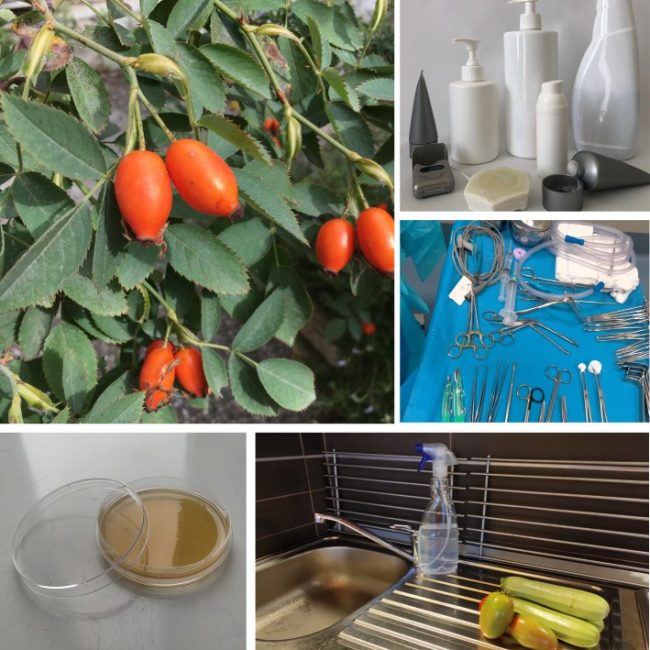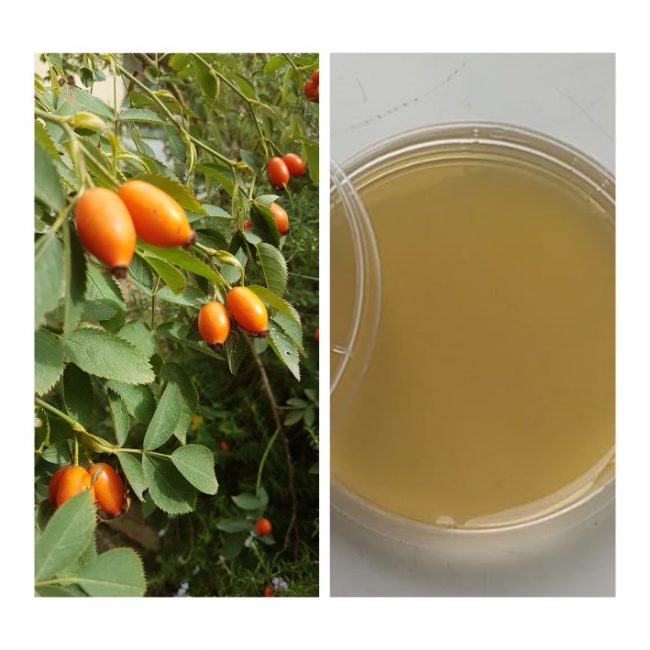Rosehip extract can be used as an antimicrobial functional base:
• In preparations for human use (creams for skin use, antibacterial gel for oral dental use in the treatment of perimplantitis and periodontitis, functional base for mouthwash and toothpastes, antifungal creams or gels for topical use;
• As a disinfectant (in household hygiene products, for skin use, in soaps etc., in preoperative disinfection, in hospital wards, against the transmission of cross infections of a nosocomial nature, for community hygiene products, in private medical practices, in the disinfection of surgical instruments, in the line systems of fluids, in aeration/conditioning systems, in environmental disinfection systems through automatic devices)
• In the veterinary field (in liquid or solid preparations for skin disinfection in farmed or pet animals, in the treatment of skin mycoses, in the treatment of parasites, in the disinfection of milking plants);
• In the agricultural field (in the treatment of diseases of plants in cultivation or in ornamental plants, in the disinfection of environments or equipment used in the packaging industry).


















